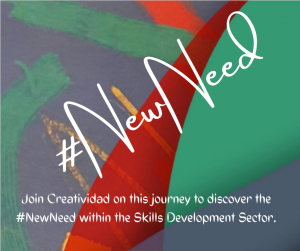R 350.00 VAT Inclusive
Entrepreneurship (US 119673)Well-being is especially important in this time in history. If you enrol for this training for personal development or to work towards a professional qualification, nobody can take away the intended outcome of improving your own well-being!

Description
Well-being is especially important in this time in history. If you enrol for this training for personal development or to work towards a professional qualification, nobody can take away the intended outcome of improving your own well-being!

The purpose of this course is:
Well-being
US244611: Apply problem-solving techniques to make a decision or solve a problem in a real-life context
In this unit standard learners should acquire basic problem-solving skills and be able to use those skills in dealing with problems or making decisions in their own lives. The focus is on authentic situations that may require a decision or be a problem for the learner.
The qualifying learner is capable of:
- Distinguishing between problems, challenges and matters requiring a decision.
- Investigating techniques for solving problems and making decisions.
- Identifying a problem in a real-life situation.
- Applying a problem-solving process or technique to propose a solution or make a decision.
US244589: Identify the causes of stress and techniques to manage it in the workplace
This Unit Standard is intended for supervisors, team leaders, managers, peer counsellors, community counsellors and employee lay counsellors who are in a position to create an environment where stress is managed so as to create a healthy and productive workplace where people’s problems are recognised and assistance is available.
A manager in the context of this Unit Standard is the manager of small business and first-line managers of business units, team leaders and supervisors in medium and large organisations. The term business unit implies a small business, cost centre, section or department.
The Unit Standard was developed as a means of contributing to change in leadership focus and empowering managers to look at people issues.
The qualifying learner is capable of:
- Explaining stress and its role in daily living.
- Explaining different ways in which people react to stress.
- Identifying stressors in the workplace and their relationship to work performance.
- Identifying stressors related to home and the greater environment.
- Investigating techniques to manage stress in the workplace.
US252513: Apply established strategies and procedures to deal with risk behaviour and promote personal wellbeing
This Unit Standard is intended for learners who counsel people in a variety of situations, but who are not registered professionals such as qualified psychologist and social workers. It will be useful for counsellors in a variety of counselling contexts including, but not limited to, schools, Non-Governmental Organisations, Faith-Based Organisations, the South African Police Service, Counselling Call Centres, Hospitals, Clinics and Support Agencies, Sports Centres, Education and Training facilities, Government and Health and Social Services facilities.
It should develop learners who know their scope of practice, behave ethically in a counselling context, conform to minimum standards and know when to refer a client. It should enable learners to identify risky behaviour, take steps to minimise risk behaviour and promote wellbeing in themselves and clients.
The qualifying learner is capable of:
- Explaining risk behaviour.
- Explaining the promotion of well-being.
- Explaining human motivation and behavioural change.
- Using accepted strategies and techniques to facilitate behavioural change
US117860: Apply knowledge of interpersonal relationships to enhance the effectiveness of the counselling process
This Unit Standard is intended to meet the needs of learners who interact with individuals and groups in a counselling context where clients are enabled to go through the process of finding solutions to their concerns or difficulties. It should develop learners who are able to manage themselves in relation to others, interact with other people and behave ethically in a counselling context. It will be useful for learners who counsel clients in a variety of contexts including, but not limited to, schools, Non-Governmental Organisations, Faith-Based Organisations, the South African Police Service, Counselling Call Centres, Hospitals, Clinics and Support Agencies, Sports Centres, Education and Training facilities, Government and Health facilities.
The qualifying learner is capable of:
- Explaining different types of relationships.
- Investigating factors that impact on interpersonal relationships.
- Developing skills and techniques for managing interpersonal relationships.
- Demonstrating the ability to manage self in relation to others.
- Exploring aspects of intercultural communication that have implications for relationships
